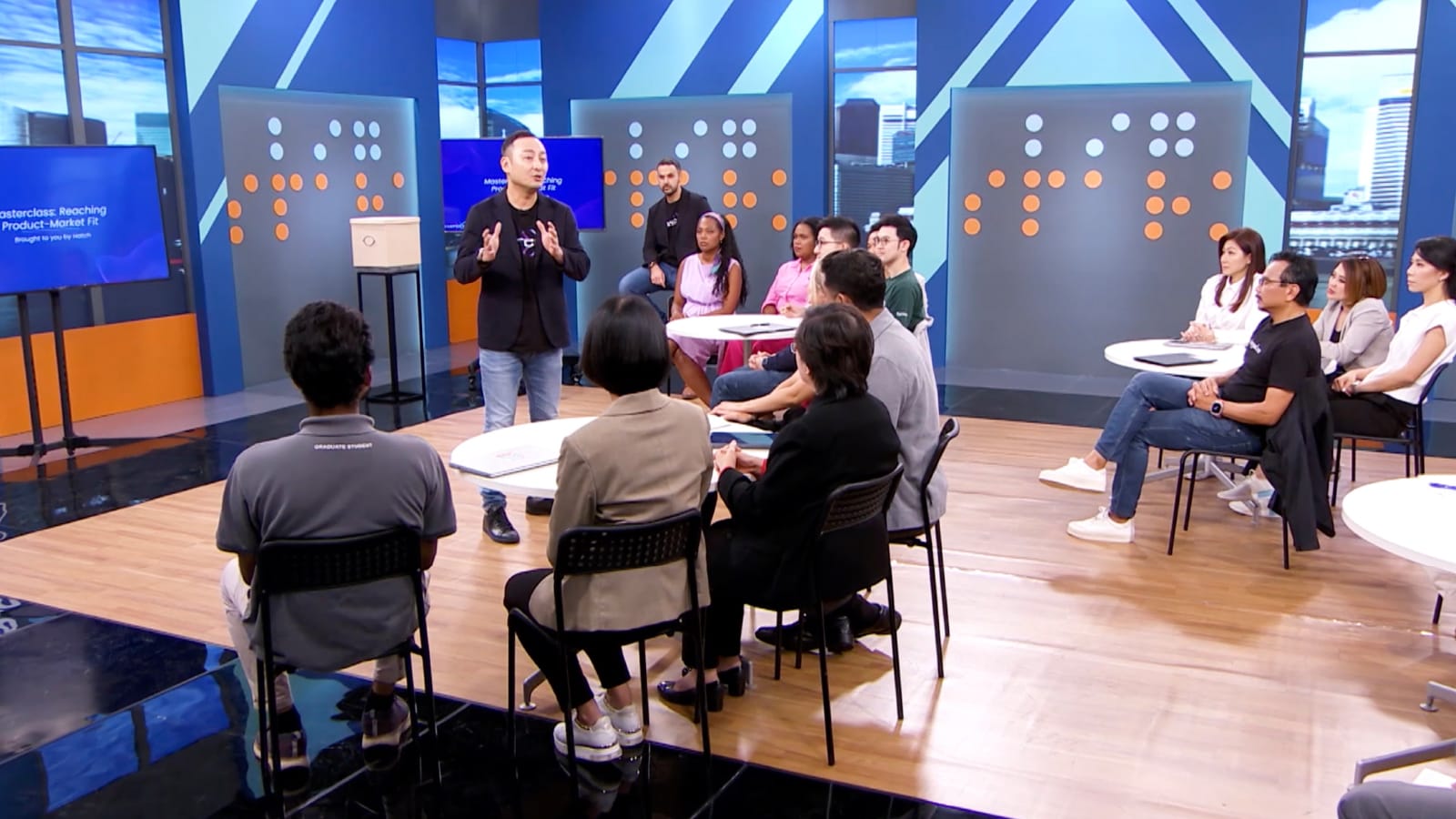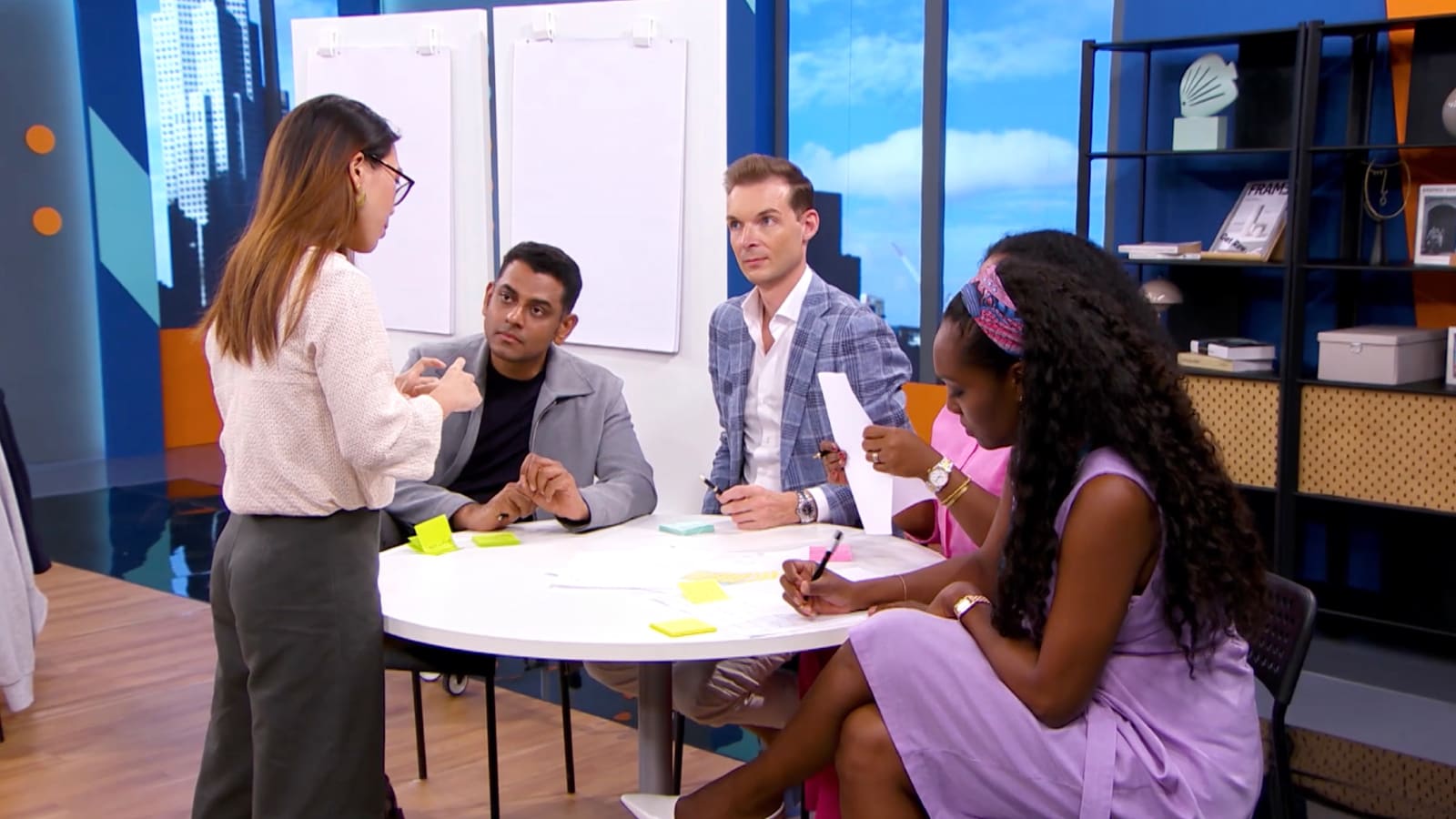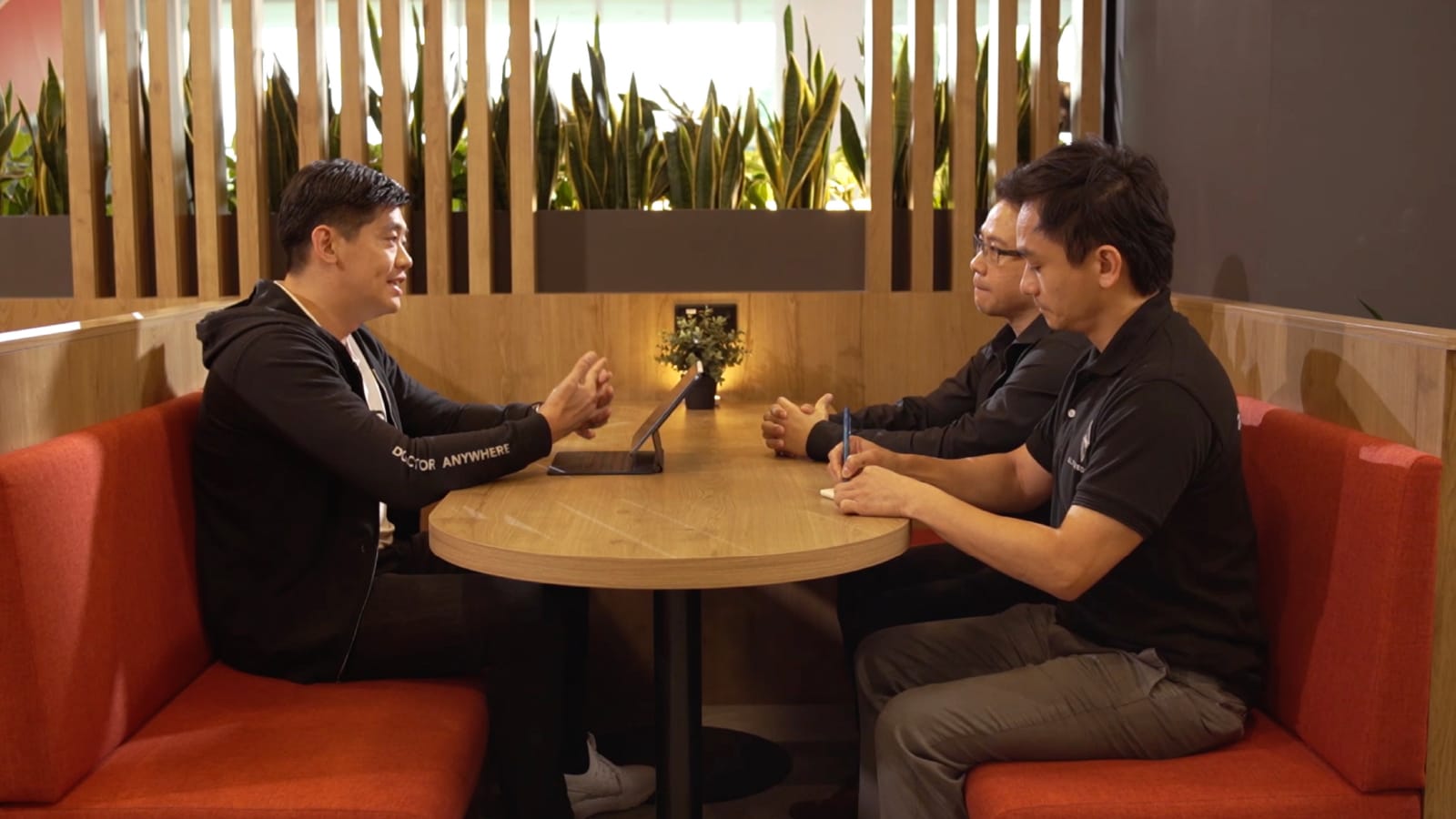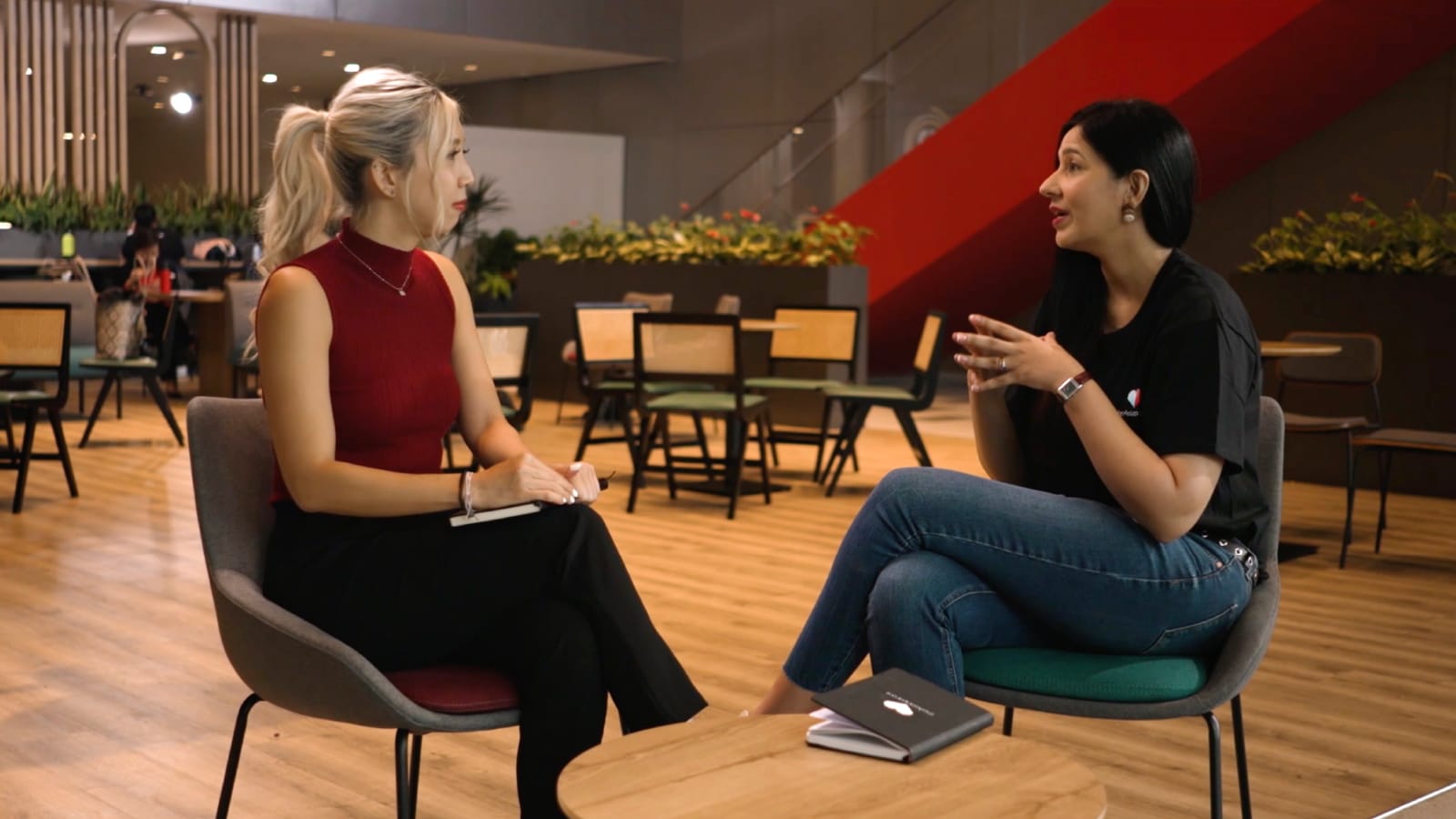
THE ART OF SELLING
The Big Spark

Learning how to manifest potential was the name of the game for the remaining 15 teams in Episode 4 of The Big Spark, a new reality show by MediaCorp with a grand prize of part of S$1 million in seed funding.
To help the teams achieve this, the showrunners had put together a Masterclass Day, during which contestants attended workshops that taught them how to better hone their presentation skills and business plans in preparation for the next stage of the competition: the 10-minute In-Depth Pitch.
Only a maximum of eight teams will proceed to the final stage — The Big Pitch — where they get a chance to woo the venture capitalists. Resident judges Roshni Mahtani Cheung, Founder & Group CEO of The Parentinc; and Lim Wai Mun, Founder & CEO of Doctor Anywhere, also gave each team tailored advice on how to improve their business.

For example, Roshni advised Lyn Kok, the founder and CEO of financial services platform Mula-X, to think of ways of boosting revenue or consider offering investors a larger equity to make her business appear as a more attractive investment prospect.
Meanwhile, the founders of ArkoPay — an Indonesia-based start-up that offers financing, payment and management solutions for small-to-medium construction firms — were advised to anticipate the questions that potential investors would ask. One burning question that needs to be answered, said Roshni, was how ArkoPay would deal with non-performing loans. Wai Mun had the same advice for Robert Hoving, the founder of Goro, telling the Dutchman that he must proactively answer questions about how his business can be scaled up during his next pitch.

SECRETS FROM THE PITCH PLAYBOOK, REVEALED
The first training session the contestants underwent was the Google Design Sprint Workshop, which shared ways on how a start-up could inject speed into its development process and quickly find solutions to the problems it is facing.
Kavita Bedi, the head of UOB’s Group Business Banking, then shared with participants the inspiring story of the bank and how a start-up can go about scaling up its business. UOB was founded in 1935 as a small financial entity that primarily served Hokkien Chinese businessmen in Singapore. Today, the bank has more than 500 offices in 19 countries.
Mok Shao Hong, the centre director of Hatch, an innovation hub for public safety and security, then reiterated the importance of product-market fit, which refers to how well a product meets its intended purpose and customer needs. “Product market fit is key because at the end of the day the entrepreneur needs to solve a problem,” he said. “Creating a business creates an economic and viable means to sustain the solution to that problem. You need to listen to your customers. You need to do that early and often.”
Mediacorp Programme Director Margaret Mary Lim then gave contestants useful presentation tips and taught them how to master the intricacies in the usage of tones, pacing, and non-verbal communication like body language and facial expressions. Eugene Cheng, a partner at B2B marketing and training agency HighSpark, also had good advice for the contestants regarding the structuring of their pitch decks, saying that they must show judges and potential investors that their businesses can effectively capitalise on a market shift that is waiting to happen.
The episode ended with a sharing session by Rhonda Wong, Group CEO and co-founder of property tech company Ohmyhome, which is the first Singapore company to be listed on the Nasdaq Stock Market in the United States. “I remember when we first had to do fundraising, I knew nothing about asking for money,” she recalled. “Over time I realised the big mistake I was making — I didn’t tell the investors what would happen to their money.” She shared with participants on the importance of being able to read their audience. “If you’re telling your story and you notice they’re getting bored, move on,” she said. “Do your calculations. Give them numbers. Let them see how they can make money by investing in you.”









